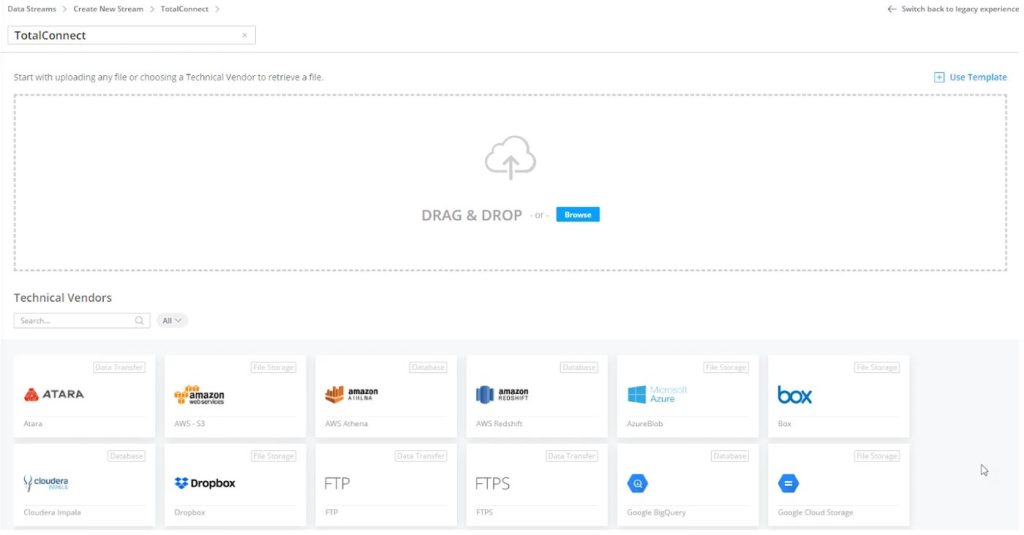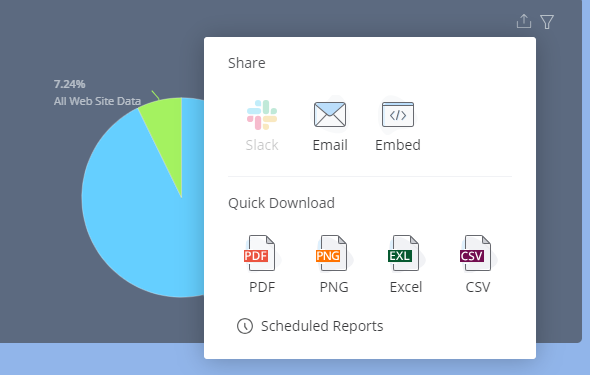In the era of omnichannel marketing, organizations try to reach subscribers and customers through various online communication channels. Analyzing the effectiveness of these actions is a crucial element in building further marketing strategies. Key concerns for many companies include topics such as:
- Return on investment (ROI) of marketing activities.
- Optimal allocation of the marketing budget.
- Making effective marketing decisions on a large scale.
In practice, companies often struggle to gather all the results and reports in order to continuously modify and improve their marketing strategies and effectively plan their budget.
Campaigns are often sent using several different tools and each of them has its own analytics. Gathering and consolidating data from various data sources is time-consuming. Individual departments are often responsible for different communication areas. As a result, the company loses the overall picture of the effectiveness of its campaigns.
Functionalities of Marketing Cloud Intelligence
Traditional business intelligence (BI) tools do not fully meet the expectations when it comes to marketing analysis. Marketing Cloud Intelligence (formerly known as Datorama until early 2022) addresses these challenges by providing organizations with:
- A unified data source: achieved by integrating data from various marketing, advertising, online analytics, CRM, e-commerce, and other platforms.
- Consistent insight into marketing analytics: allows real-time access to campaign results and optimization.
- Automation of reporting processes and quick data sharing: Marketing Cloud Intelligence enables easy sharing of current reports with key stakeholders, partners, and clients.
Let’s take a closer look at the functionalities of the platform that help organizations analyze marketing data, optimize campaigns, and manage data more effectively.
Unified Data Source
Marketing Cloud Intelligence is a solution that enables data acquisition from various online and offline sources. It offers integration with the Salesforce cloud products as well as a variety of other API connections via the API Connectors tool. The platform enables the collection of data from various marketing, advertising, social, and e-commerce platforms. Marketing Cloud Intelligence also allows the importation of data from online data repositories and spreadsheets (via TotalConnect and LiteConnect functions).
API Connectors
Marketing Cloud Intelligence offers integration with many Salesforce cloud tools through API connectors, including:
- Salesforce Marketing Cloud,
- Salesforce Advertising Studio,
- Pardot,
- Social Studio,
- Commerce Cloud,
- Data Cloud,
- Interaction Studio.
It can also get external companies’ data, such as:
- Google Analytics,
- Google Campaign Manager,
- Google Search Ads 360,
- Facebook Ads,
- Instagram,
- Pinterest,
- TikTok Ads,
- Twitter,
- YouTube,
- Mailchimp,
- Marketo,
- Amazon.
Furthermore, Marketing Cloud Intelligence can be connected to other data management platforms like SAP HANA, AWS, Oracle, SQL Server, and Adobe Analytics.

It’s worth to mention that gathering data from all these sources does not require advanced technical knowledge. The library of available API connectors is regularly updated and new connection types are added to it. Moreover, users can find and download additional connectors from the Marketplace tab.
TotalConnect

Apart from the described types of connections, Marketing Cloud Intelligence also allows the uploading of various kinds of flat files called TotalConnect. This method is typically used for receiving data from a source that does not have a ready-made API Connect interface. It allows the automatic retrieval of data from external databases and file-sharing platforms, such as Box, Dropbox, MySQL, Google Spreadsheet, OneDrive, or SFTP.

After uploading a file using the TotalConnect option, you can map the imported data appropriately, i.e., connect source fields with the corresponding fields in the Marketing Cloud Intelligence. The platform performs initial mapping using machine learning algorithms. Users can choose to use this automatic mapping or modify it as needed.

LiteConnect
The third option for sending data to Marketing Cloud Intelligence is the LiteConnect feature. It enables to transfer files effortlessly and eliminates the need to map data or adhere it to the predefined data model structure. Marketing Cloud Intelligence automatically creates a dashboard based on the uploaded data.
This option is particularly useful when you need to quickly display data in a more understandable format than raw table with fields and values. Files sent via LiteConnect method function as standalone data. Therefore, it is suitable for various data sources that aren’t directly related to marketing, such as weather information or product reviews.
Data modeling
Marketing Cloud Intelligence aggregates and harmonizes data from various marketing sources that use different KPI indicators, including online advertisements, social media, email campaigns, and information about user behavior on websites. The platform analyzes complex and unstructured data files and standardizes them based on a common value, such as campaign names. Marketing Cloud Intelligence provides organizations with a comprehensive view of their marketing activities and, thanks to this, can be named a “single source of truth.”
Without data harmonization, companies would have to analyze the results of each campaign separately. Working this way makes it challenging to draw holistic conclusions. It is also worth mentioning that the Harmonization Center feature in Marketing Cloud Intelligence is user-friendly and allows users without special technical skills to utilize it effectively.
Like most Salesforce products, Marketing Cloud Intelligence also incorporates artificial intelligence and machine learning capabilities that automatically identify patterns, trends, and capture anomalies within the data. All these features aid marketers in data observation and decision-making processes. The Einstein Marketing Insights tool conducts a deep analysis of marketing campaigns and automatically detects strategic areas that require improvement.
Marketing Cloud Intelligence helps save many hours required for manual data compilation, merging multiple Excel sheets and reports. Thanks to this, companies can put more effort into data analysis, budget optimization, and increasing the efficiency of their marketing activities.
Automation of Reporting Processes
One of the main advantages of Marketing Cloud Intelligence is data visualization. Raw data is transformed into clear charts and dashboards that can be further modified, filtered, and customized to meet specific needs. Users can choose from various chart types, including bar charts, line charts, pie charts, and heatmaps. These options are available directly in the dashboard editing view, but dashboards can be also further enriched by additional widgets downloaded from the Marketplace tab. This format of presenting data makes it understandable for various stakeholder groups.
Dashboards can be personalized by adding an organization’s logo, custom background, or changing chart colors, which helps in presenting results more effectively.

Moreover, the tool allows to share the individual charts or entire dashboards in various formats, such as PDF, PNG, and Excel files in a very easy way. All of the mentioned elements can be easily sent to individuals who do not use Marketing Cloud Intelligence and do not have access to the platform.

The process of sending individual reports can occur both ad hoc and can be automated. Marketing Cloud Intelligence enables data sharing for a specific time period with specific stakeholders at an agreed frequency. These functionalities simplify data sharing process and improve information flow within the organization. Automated reports and dashboards contribute to better communication and collaboration between different departments. Clear dashboards facilitate data analysis and decision-making based on data.
Summary
Marketing Cloud Intelligence is a comprehensive solution for businesses. It not only helps manage the marketing data and optimize campaigns but also assists organizations in developing data-driven marketing strategies that lead to achieving better results and increasing return on investment.
The main benefits of using Marketing Cloud Intelligence include:
Data Integration and Centralization: Marketing Cloud Intelligence enables the integration of data from various sources, eliminating the need for manually gathering information from different systems. This provides organizations with a unified and comprehensive view of their marketing activities.
- Campaign Optimization: Through data mapping, Marketing Cloud Intelligence helps organizations understand which campaigns are most effective and which ones need optimization. This allows for efficient allocation of the marketing budget.
- Personalized Communication: Marketing Cloud Intelligence allows for audience segmentation based on collected data, enabling the personalization of content and marketing messages, which increases customer engagement.
- Rapid Response to Changes: Marketing Cloud Intelligence offers tools for real-time monitoring of campaign results, allows quick reactions to changes and adjustments to the marketing strategy in real time.
- Better Understanding of Customers: Marketing Cloud Intelligence allows for the creation of advanced analyses that help gain a deeper understanding of customer behaviors and preferences. This information can be used to create more effective marketing strategies.
















Leave a comment